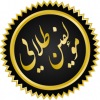جلد سخت سیاه و سفید
Product details
- Publisher : Oxford University Press (March 1, 2022)
- Language : English
- Hardcover : 288 pages
- ISBN-10 : 0190877243
- ISBN-13 : 978-0190877248
کتاب Democracy under Fire: Donald Trump and the Breaking of American History
Donald Trump's presidency offered Americans a dire warning regarding the vulnerabilities in their democracy, but the threat is broader and deeper-and looms still.
"January 6th was a disgrace," Senate Republican Leader Mitch McConnell solemnly intoned at the end of Donald Trump's second impeachment trial on February 13, 2021. As to the culprit, Senator McConnell declared that "there is no question that President Donald Trump is practically and morally responsible." Before Trump even ran for President, his disdain for the rules, procedures, and norms of American democracy and the US Constitution was well-known and led prominent Republicans to repudiate him as "unfit" for the GOP nomination. Given the clear-eyed assessment of candidate Trump, why did the Republican Party nominate him as its presidential candidate in 2016 and then stand by him during the next four years?
Much of the attention paid to Trump's rise to power has focused on his corrosive personality and divisive style of governing. But he alone is not the problem. The vulnerability is much broader and deeper. The ascendance of Trump is the culmination of nearly 250 years of political reforms that gradually ceded party nominations to small cliques of ideologically-motivated party activists, interest groups, and donors. Trump's rise is not an aberration but a predictable outcome of trends deeply rooted in American history but which accelerated in the last few decades.
In Democracy under Fire, Lawrence Jacobs provides a highly engaging, if disturbing, history of political reforms since the late-eighteenth century that over time dangerously weakened democracy, widened political inequality as well as racial disparities, and rewarded toxic political polarization. Jacobs' searing indictment of political reformers concludes with recommendations to restrain the unbridled ambition of politicians who thrive on division and instead generate broad citizen engagement with tangible policy making.
منابع کتاب کتاب Democracy under Fire: Donald Trump and the Breaking of American History
ریاستجمهوری دونالد ترامپ به آمریکاییها هشدار هولناکی در مورد آسیبپذیریهای دموکراسی آنها داد، اما این تهدید گستردهتر و عمیقتر است و همچنان ادامه دارد.
میچ مک کانل، رهبر جمهوری خواهان سنا در پایان دومین محاکمه استیضاح دونالد ترامپ در 13 فوریه 2021 رسماً گفت: "6 ژانویه مایه شرمساری بود." و از نظر اخلاقی مسئولیت پذیر است.» حتی قبل از اینکه ترامپ برای ریاست جمهوری نامزد شود، بیزاری او نسبت به قوانین، رویه ها و هنجارهای دموکراسی آمریکا و قانون اساسی ایالات متحده شناخته شده بود و باعث شد تا جمهوری خواهان برجسته او را برای نامزدی حزب جمهوری خواه انکار کنند. با توجه به ارزیابی شفاف ترامپ، چرا حزب جمهوری خواه او را به عنوان نامزد ریاست جمهوری خود در سال 2016 معرفی کرد و سپس در چهار سال آینده در کنار او ایستاد؟
بیشتر توجهی که به به قدرت رسیدن ترامپ شده است، بر شخصیت فرساینده و سبک تفرقهانگیز حکومت او متمرکز شده است. اما مشکل او به تنهایی نیست. آسیب پذیری بسیار گسترده تر و عمیق تر است. صعود ترامپ نقطه اوج تقریباً 250 سال اصلاحات سیاسی است که به تدریج نامزدی حزب را به دسته های کوچکی از فعالان حزبی با انگیزه ایدئولوژیک، گروه های ذینفع و کمک کنندگان واگذار کرد. ظهور ترامپ یک انحراف نیست، بلکه نتیجه قابل پیش بینی روندهایی است که عمیقاً در تاریخ آمریکا ریشه دارد، اما در چند دهه اخیر شتاب گرفته است.
در دموکراسی زیر آتشلارنس جیکوبز تاریخچه بسیار جذاب و البته نگران کننده ای از اصلاحات سیاسی از اواخر قرن هجدهم ارائه می دهد که در طول زمان به طور خطرناکی دموکراسی را تضعیف کرد، نابرابری سیاسی و همچنین نابرابری های نژادی را گسترش داد و به قطب بندی سیاسی سمی پاداش داد. کیفرخواست خشمگین جاکوبز علیه اصلاح طلبان سیاسی با توصیه هایی برای مهار جاه طلبی افسار گسیخته سیاستمدارانی که بر اساس تفرقه شکوفا می شوند و در عوض باعث مشارکت گسترده شهروندان با سیاست گذاری ملموس می شوند، به پایان می رسد.
































ارسال نظر درباره کتاب Democracy under Fire: Donald Trump and the Breaking of American History